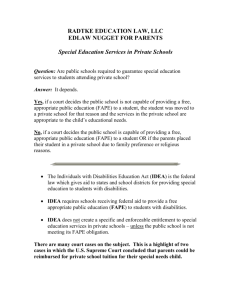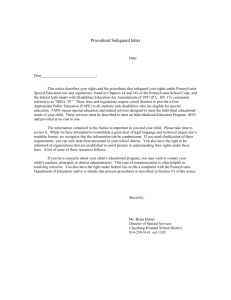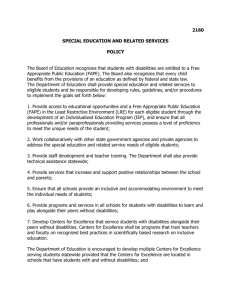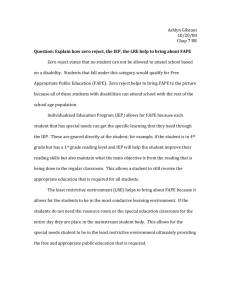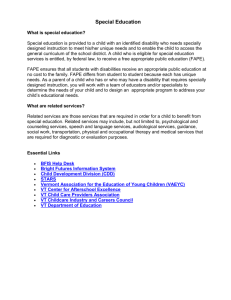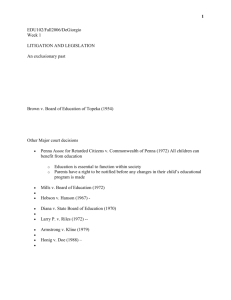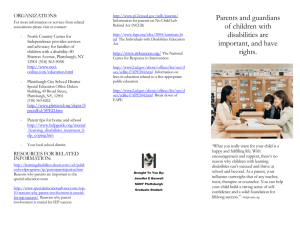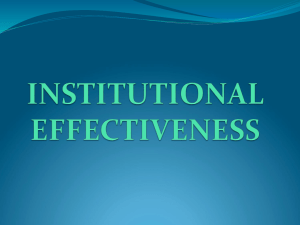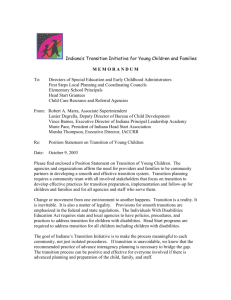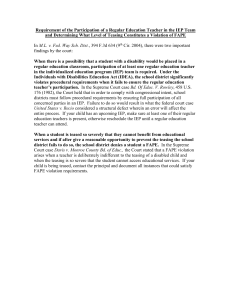File - Craig Bryant
advertisement
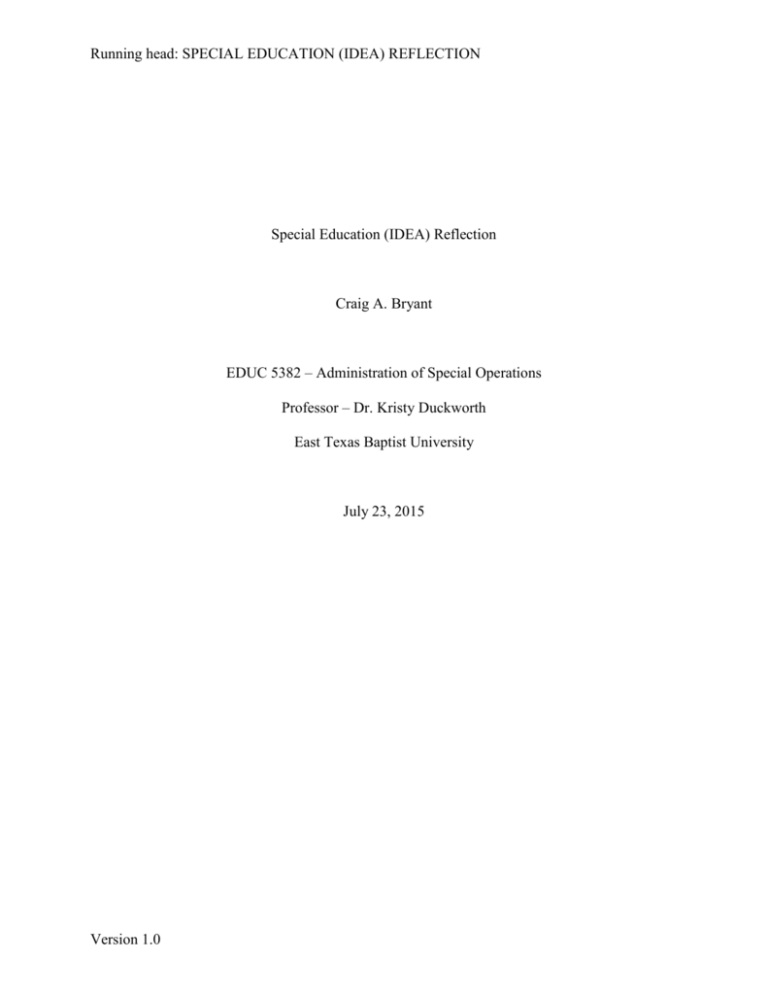
Running head: SPECIAL EDUCATION (IDEA) REFLECTION Special Education (IDEA) Reflection Craig A. Bryant EDUC 5382 – Administration of Special Operations Professor – Dr. Kristy Duckworth East Texas Baptist University July 23, 2015 Version 1.0 SPECIAL EDUCATION (IDEA) REFLECTION 2 Philosophy, Policies, & Procedures The Individuals with Disabilities Education Act (IDEA) replaced the Education for All Handicapped Children Act, and is meant to ensure that students with a disability are provided with a Free Appropriate Public Education (FAPE) that is tailored to their individual needs. There are four parts to this federal law, lettered A-D. Part A covers the general provisions of the law, Part B covers assistance for education of all children with disabilities, Part C covers infants and toddlers with disabilities which includes children from birth to age three, and Part D is the national support programs administered at the federal level. In short, the goal of IDEA is to provide children with disabilities the same opportunity for education as those students who do not have a disability. In addition to the four parts, there are six main elements, or components, to the law. These six elements are: Individualized Education Program (IEP), Free and Appropriate Public Education (FAPE), Least Restrictive Environment (LRE), Appropriate Evaluation, Parent and Teacher Participation, and Procedural Safeguards. Other important aspects of the include confidentiality and discipline of special education students. Special Education law is extensive, and its policies and procedures cover an extremely wide breadth of information. Planning, People, & Funding Planning for the special education program requires that administrators, special education teachers, diagnosticians, and general education teacher work together to ensure that students who are under the Special Education umbrella are given the FAPE. This can be done through Campus Improvement Plans, as well as other types of meetings. Annual Review meetings, called ARDs, are held to discuss individual education plans with parents. This is where those plans are built, SPECIAL EDUCATION (IDEA) REFLECTION 3 and once signed and processed, teachers and administrators must follow them. Funding comes from federal and state sources. Problems/Issues & Personal Beliefs One problem that arises in my school is the issue of paperwork. I want to, as a general education teacher, provide the assistance and IEP to the SpEd students. However, many times we don’t receive the correct paperwork on students for at least a couple of weeks into the year. Communication, or lack thereof, among all parties involved can also become a problem. Furthermore, the law, understandably, is so extensive, that it is hard for a general education teacher to have the necessary knowledge to keep up. Special Education law is in place to ensure that all students receive a worthy education, and that is a great thing. As a teacher, I work hard to make sure my SpEd students are given the best possible education. Teachers must work with the specialists and administrators to make certain that these students don’t fall through the cracks.
